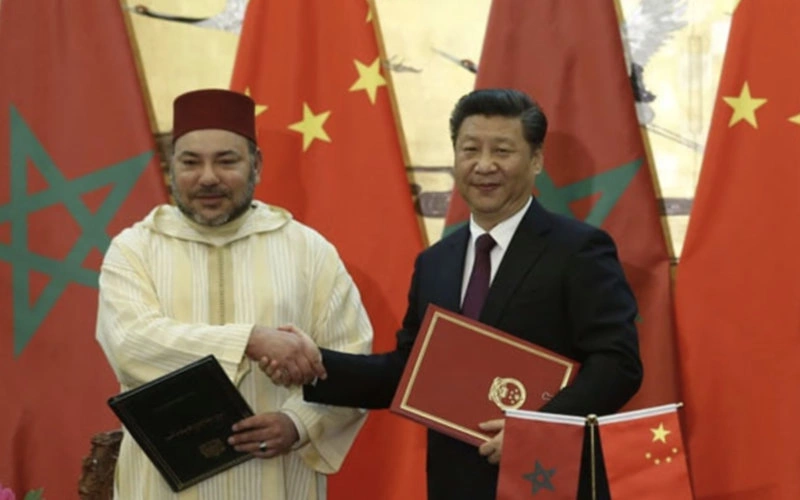Morocco Emerges as Key Player in Global Electric Vehicle Industry Rivalry

The surprise visit of Xi Jinping to Morocco in November last year, on the sidelines of the G20 in Brazil, has caused a stir. More than a simple diplomatic stopover, this trip illustrates the growing importance of the kingdom in China’s strategy of dominating the electric vehicle market. A major issue as China prepares to face the potential return of Donald Trump to the White House and an intensification of trade tensions with the West.
Europe and the United States, concerned to reduce their dependence on Beijing, are multiplying protectionist measures. The European Green Deal and "open strategic autonomy" aim to strengthen European supply chains, while the American Inflation Reduction Act encourages the relocation of strategic industries, particularly in the electric vehicle and battery sectors, writes in an analysis the think tank Chatham House. Faced with these obstacles, China is looking for new outlets and Morocco, with its undeniable assets, seems to be the perfect choice.
The kingdom indeed has 72% of the world’s phosphate reserves, a mineral essential for the manufacture of lithium-iron-phosphate (LFP) batteries, which are more economical and safer than lithium-ion NMC batteries. In addition, its privileged geographical position, at the crossroads of the European, African and American markets, makes it an ideal logistics hub. Add to this modern infrastructure, skilled and inexpensive labor, and a stable political environment, and you get fertile ground for foreign investment.
China has understood this well and is multiplying initiatives in Morocco. In June 2023, a $6.4 billion memorandum of understanding was signed with Guchen Hi-tech for the construction of a gigafactory near Rabat, the largest in Africa. Beijing is also massively investing in transport infrastructure, particularly railways, with the participation of the China Overseas Engineering Corporation (Covec) in the construction of the high-speed line Kenitra-Marrakech.
For Morocco, this Sino-Moroccan cooperation is a windfall. It allows it to develop its industry, modernize its infrastructure and establish itself as a key player in international trade. Rabat also sees this partnership as a way to diversify its alliances and gain independence from France, its historical partner.
However, the Cherifian kingdom is walking on eggshells. Getting closer to China risks offending the West and exposing it to trade retaliation. The Biden administration has already mentioned the possibility of restricting imports of Chinese electric vehicles, regardless of their origin, for data security reasons. Morocco could thus find itself, despite itself, at the heart of a trade war between the great powers.
Aware of these issues, Rabat is playing the card of caution. The kingdom favors a bilateral and transactional approach with Beijing and hesitates to join Chinese multilateral initiatives, such as the BRICS. The objective is clear: to take advantage of the opportunities offered by China without alienating the West. A delicate balancing act that could make Morocco a case study for Southern countries wishing to navigate an increasingly complex multipolar world.
Related Articles
-

Illegal Beach Sand Mining Near Tangier Sparks Environmental and Economic Outcry
4 September 2025
-

Surveillance Footage Exposes Tourist Robbery Ring in Tangier Court Drama
4 September 2025
-

Rif Protest Icon’s Father Dies: Ahmed Zefzafi’s Passing Reignites Hirak Movement Debate
3 September 2025
-

Gulf Tourists and Moroccan Women Arrested in Marrakech Prostitution Sting
3 September 2025
-

Groom’s Secret Past Exposed: First Wife Crashes Moroccan Wedding, Halting Ceremony
3 September 2025